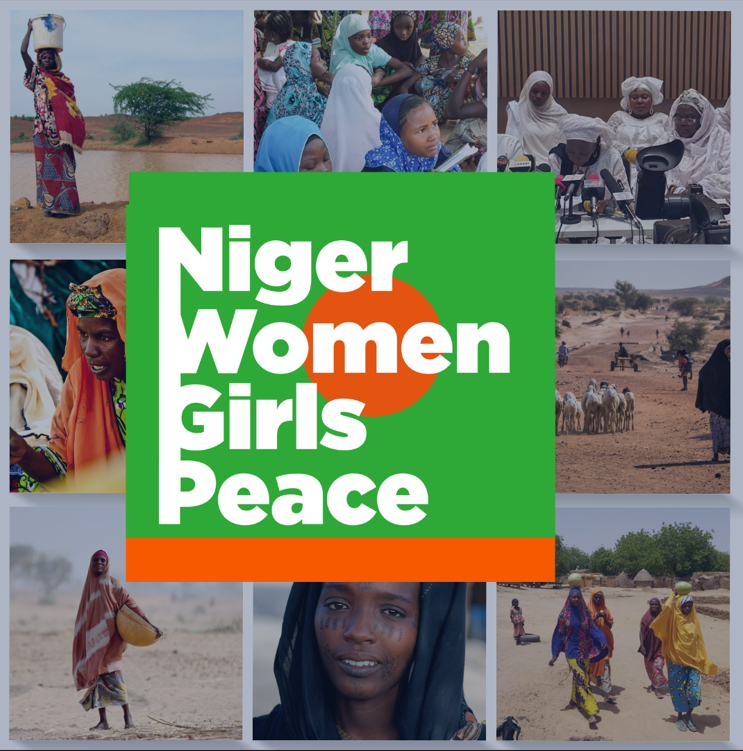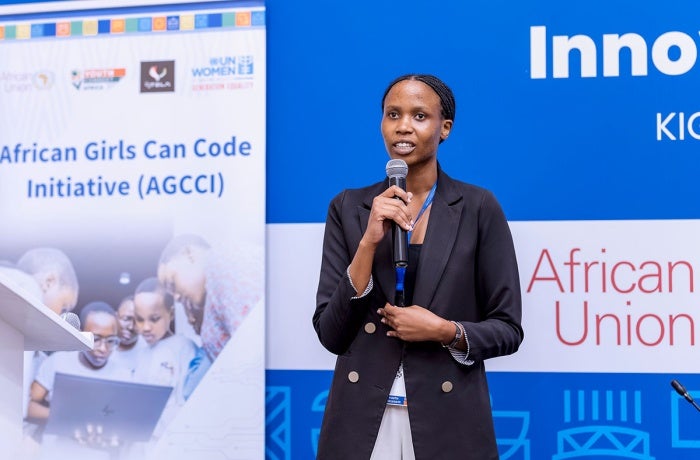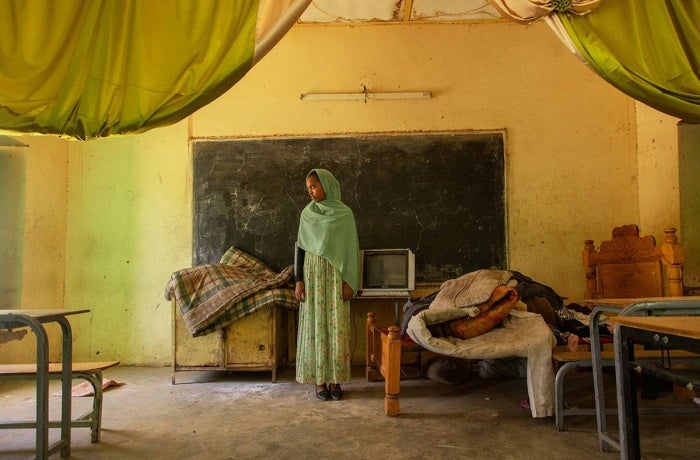Women’s groups in Niger push for justice amid coup and economic crisis
An estimated 4.3 million people in Niger are in need of humanitarian assistance, including about 370,000 internally displaced people and 255,000 refugees. Of the 3.3 million facing food insecurity, a majority are women and children. Women are a critical priority, both as recipients of aid for their families and as vital players in mediation and peacebuilding.
Since the country’s coup on 26 July, the women of Niger have been mobilizing as part of efforts towards a peaceful resolution to the country’s political and economic crises.

“This crisis threatens to ruin my business and drive me into food and financial insecurity”, said a woman identified as Hadiza, who makes a living importing clothes from Nigeria and spoke on a podcast aired as part of the women’s rights digital campaign “NigerFemmesFillesPaix” (NigerWomenGirlsPeace).
The campaign was launched on 5 September with the support of more than 50 local women’s civil society groups as well as more than 30 young girl influencers under the banner of "Girls4peace". As of 20 October, the campaign had received more than 2.9 million social media impressions through videos, podcasts, and other web content.
Throughout the campaign, participants have highlighted the urgent need to protect women and girls from gender-based violence, to preserve gains in women’s rights, and to continue the provision of essential services, ranging from maternal and reproductive health care to water and electricity.
“As a direct victim of this crisis, we appeal to the parties involved […] to take our rights into account”, Hadiza said.
Organizations connected with the African Women Leaders Network (AWLN) have also voiced their support for the women of Niger and have lobbied West African authorities to reduce the suffering of women and children due to previous sanctions. Advocacy missions have been initiated with this objective, with the support of the FEMWISE network.
As part of the women’s initiative to participate in the transition processes and peace building in Niger, from 20 to 22 September 2023, the organization Femmes, Action et Développement (FAD) organised a Feminine diaologue, where more than 30 women’s organizations from Niger’s eight regions and more than 100 participants came together under the banner of Movement for the Respect of Women’s Rights in Niger (MRDFN).
The activists called for regional parties as well as local political, traditional, and religious leaders, as well as the de facto authorities, to continue to safeguard the rights of women and children, and to facilitate meaningful inclusion of women in all political processes.
Before the coup, women’s participation in parliament was 30.72 per cent. With the National Assembly and state institutions now dissolved, the implementation of progressive provisions such as the quota law that improved women’s representation in parliament is uncertain.
“Since the coup d’état, I have noticed a certain deterioration of my rights as a woman”, said a young activist identified as Rachida, who spoke on a podcast organized as part of Niger Femmes Filles Paix.
“Women must be put at the forefront of any question that concerns peace, dialogue, and social cohesion, because they are an important pillar of society”, she said.









